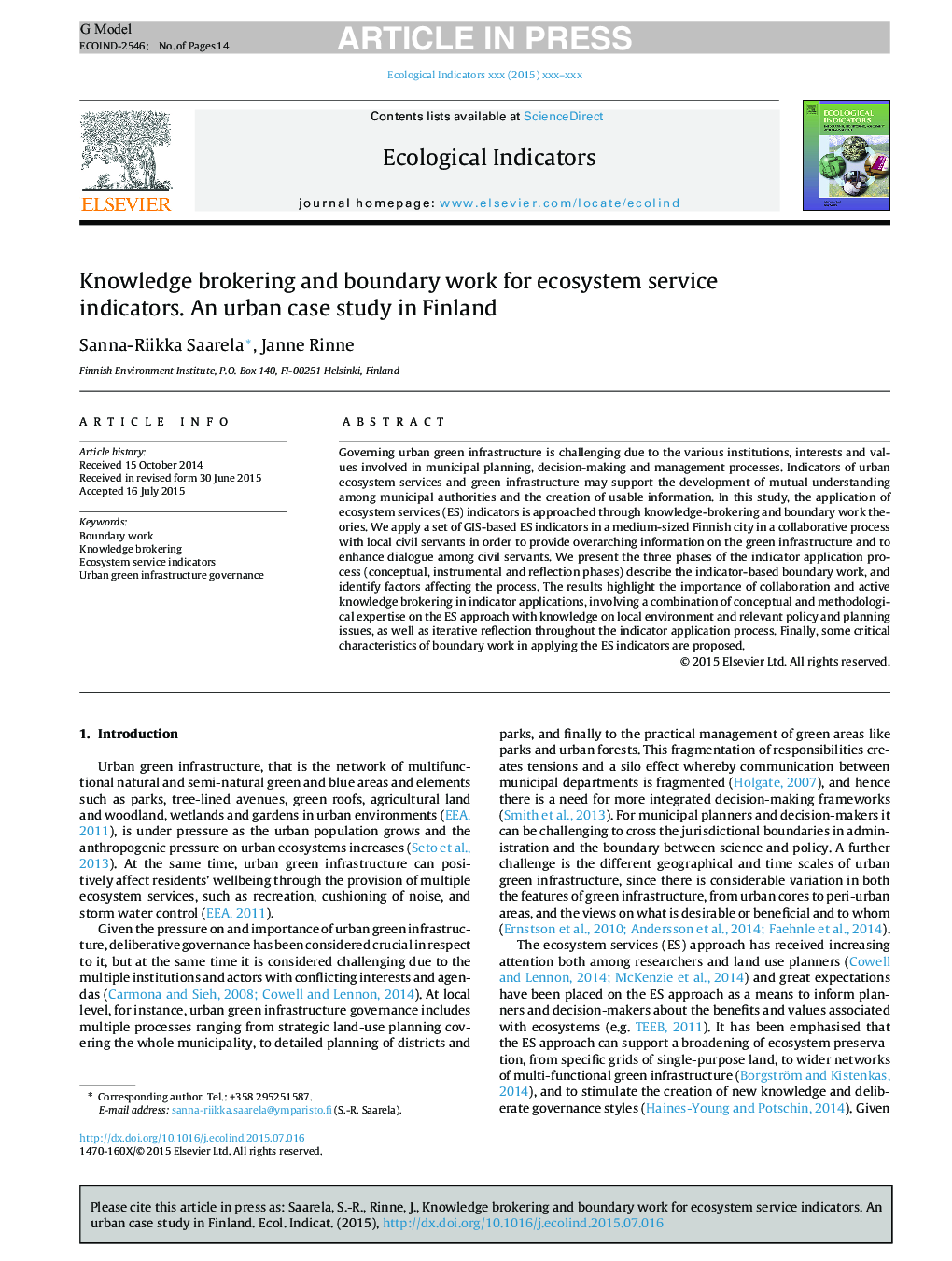| Article ID | Journal | Published Year | Pages | File Type |
|---|---|---|---|---|
| 6293388 | Ecological Indicators | 2016 | 14 Pages |
Abstract
Governing urban green infrastructure is challenging due to the various institutions, interests and values involved in municipal planning, decision-making and management processes. Indicators of urban ecosystem services and green infrastructure may support the development of mutual understanding among municipal authorities and the creation of usable information. In this study, the application of ecosystem services (ES) indicators is approached through knowledge-brokering and boundary work theories. We apply a set of GIS-based ES indicators in a medium-sized Finnish city in a collaborative process with local civil servants in order to provide overarching information on the green infrastructure and to enhance dialogue among civil servants. We present the three phases of the indicator application process (conceptual, instrumental and reflection phases) describe the indicator-based boundary work, and identify factors affecting the process. The results highlight the importance of collaboration and active knowledge brokering in indicator applications, involving a combination of conceptual and methodological expertise on the ES approach with knowledge on local environment and relevant policy and planning issues, as well as iterative reflection throughout the indicator application process. Finally, some critical characteristics of boundary work in applying the ES indicators are proposed.
Related Topics
Life Sciences
Agricultural and Biological Sciences
Ecology, Evolution, Behavior and Systematics
Authors
Sanna-Riikka Saarela, Janne Rinne,
